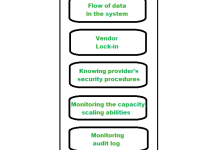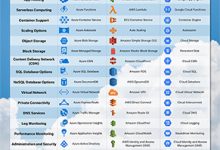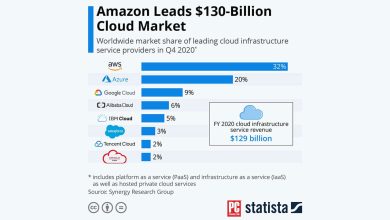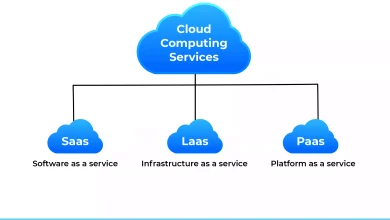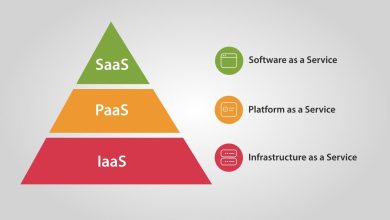future of cloud computing in software
Ads
The Value of Cloud Computing in Software Industry
Cloud computing has revolutionized the software industry by providing a flexible and scalable platform for developers to build and deploy applications. The future of cloud computing in software is bright, as more companies are adopting cloud-based solutions to improve efficiency, reduce costs, and increase accessibility to their software products.
Introduction to Cloud Computing
Cloud computing refers to the delivery of computing services such as storage, processing power, and networking over the internet. This allows organizations to access resources on a pay-as-you-go basis, eliminating the need for large upfront investments in hardware and infrastructure. Software companies are increasingly turning to cloud computing to enhance their offerings and stay competitive in the rapidly evolving tech landscape.
The Benefits of Cloud Computing in Software
One of the main advantages of cloud computing in the software industry is its scalability. Companies can easily scale up or down their resources based on demand, saving on costs and ensuring optimal performance. Additionally, cloud computing enables faster development and deployment of software products, as developers can access resources instantly without the need for physical hardware.
The Challenges of Cloud Computing in Software
While cloud computing offers numerous benefits, there are also challenges that software companies need to consider. Security is a major concern, as storing sensitive data on remote servers can expose it to cyber threats. Companies must invest in robust security measures to protect their data and ensure compliance with regulations.
Future Trends in Cloud Computing
The future of cloud computing in software is marked by several key trends, including multi-cloud environments, edge computing, and serverless architecture. Multi-cloud environments allow companies to leverage multiple cloud providers for different needs, while edge computing brings processing power closer to the source of data for faster performance. Serverless architecture eliminates the need for server management, allowing developers to focus on building innovative software solutions.
The Impact of AI and Machine Learning on Cloud Computing
AI and machine learning are driving innovation in cloud computing by improving data analysis, automation, and predictive capabilities. Cloud providers are integrating AI services into their platforms to help developers create intelligent software solutions that can learn and adapt to user behavior. This trend is expected to continue shaping the future of cloud computing in the software industry.
The Future of Cloud Computing in Software Development
As the demand for cloud-based solutions continues to rise, software companies are investing in cloud-native development to build applications specifically designed for the cloud environment. This approach optimizes resources, enhances scalability, and accelerates time to market. The future of cloud computing in software development lies in harnessing the full potential of the cloud to deliver innovative and efficient solutions.
Table of Future Cloud Computing in Software
| Key Aspect | Future Trends | Impact |
|---|---|---|
| Scalability | Multi-cloud environments | Enhanced flexibility |
| Security | Advanced encryption | Data protection |
| AI Integration | Machine learning services | Improved automation |
| Edge Computing | Real-time processing | Low latency |
Frequently Asked Questions (FAQs)
1. What are the main benefits of cloud computing for software development?
Cloud computing offers scalability, cost-efficiency, and faster deployment for software products, enabling developers to innovate and meet market demands effectively.
2. How does cloud computing impact data security in software applications?
While cloud computing provides benefits such as data encryption and secure access controls, companies must also address potential risks such as data breaches and compliance issues.
3. What role does AI play in shaping the future of cloud computing?
AI technologies enhance cloud computing by enabling predictive analytics, automation, and intelligent decision-making processes that improve software performance and user experience.
4. How can companies mitigate risks associated with cloud computing?
Companies can mitigate risks by implementing robust security measures, conducting regular audits, staying compliant with regulations, and adopting best practices for data management.
5. What are the key considerations when choosing a cloud provider for software development?
Companies should consider factors such as security protocols, scalability options, pricing models, customer support, and service reliability when selecting a cloud provider for their software projects.
6. How does edge computing complement cloud computing in software applications?
Edge computing brings processing power closer to the source of data, reducing latency and improving performance in real-time applications that require instant data processing and response.
7. What are the emerging trends in cloud computing that will shape the future of software development?
Emerging trends such as serverless architecture, containerization, and hybrid cloud solutions are expected to drive innovation and efficiency in software development by leveraging cloud technologies effectively.
Conclusion: Embracing the Future of Cloud Computing in Software
In conclusion, the future of cloud computing in software is filled with possibilities for innovation, efficiency, and growth. By leveraging the latest trends and technologies in cloud computing, software companies can unlock new opportunities to build intelligent, scalable, and secure applications that meet the evolving needs of the market. Embracing the future of cloud computing is essential for staying competitive in the digital age and delivering exceptional software solutions that drive success.
Are you ready to embrace the future of cloud computing in software development? Take the first step towards optimizing your software solutions and driving innovation in the industry. Join the cloud computing revolution today and unlock a world of endless possibilities for your software projects.
Remember, the future belongs to those who adapt and innovate. Don’t wait for tomorrow, start building the future of cloud computing in software today!
Disclaimer: The information provided in this article is for educational purposes only and does not constitute professional advice. Readers are encouraged to conduct their own research and consult with expert professionals before making decisions related to cloud computing in software development.




